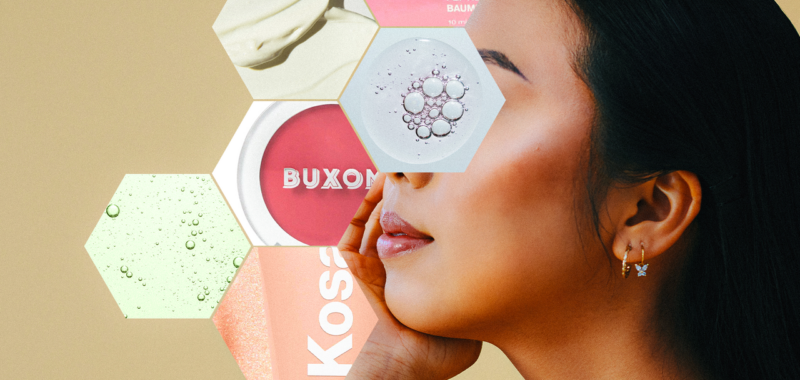Androulakis points to the makeup artists-turned brand founders who have launched their own makeup products, many of which feature skin care.
“We think about runway and red carpet makeup—15 years ago, these makeup artists were forced to mix their own skin care into products because these products didn’t exist on the market,” says Androulakis. “So all of those gaps that they found, whether it’s Mario Dedivanovic, Charlotte Tilbury, or Pat McGrath, they all infused what they’ve needed in their products.”
Beyond functionality, however, the actual benefits of skin care in makeup are less effective. Dr. Joshua Zeichner, MD, director of cosmetic and clinical research in dermatology at Mount Sinai Hospital in New York City, says the dosage of skin care included in makeup is typically too small to achieve results and should not substitute your daily skin care routine.
“Most specialized ingredients require delivery systems that don’t allow cosmetically acceptable make up,” Dr. Zeichner explains. “While these ingredients are included in make up, they often are included at lower concentrations as not to interfere with the aesthetics of the makeup itself.”
Rhode, the skin care brand founded by Hailey Bieber, is one of the leading brands to adopt “peptides” as part of it’s marketing strategy. Rhode entered the color cosmetics category in 2023 with the launch of the Peptide Lip Tint followed by the Pocket Blush. Dr. Dhaval Bhanusali, MD, founder of Hudson Dermatology and Laser Surgery and member of Rhode’s skin care advisory board, says skin care in makeup is a “supplementary benefit.”
“In general, we don’t look at the skin care actives as a primary benefit of makeup,” Dr. Bhanusali says. “If you are applying something on your skin, you want to enhance the benefits the best you can. That said, makeup is meant to sit on top of your skin, so there can be a limit on the efficacy. I like looking at both calming ingredients like niacinamide and ingredients that can maintain hydration like hyaluronic acid and squalane.”
On the flip side, there are some skin care ingredients you’ll want to avoid. Dr. Ferzli recommends steering clear of retinol and vitamin C in makeup.
“Retinol, you should have in your routine for most people, it needs to be effective and it is drying,” she says. “So putting it in makeup makes very little sense because you’re not supposed to be wearing retinol during the day anyway. And the little dose put in makeup would just cause irritation, if anything, because it’s definitely a weaker version of the molecule.”
Regardless, Androulakis says we can expect more and more brands to push the envelope when it comes to skin care in makeup. She hints at innovations coming “in the next few months” using new ingredients like polyglutamic acid.
“Brands used to sprinkle in actives at such a low level that it actually wouldn’t pass a clinical test.” Androulakis says. “But now they’re pushing it to the usage points because customers want to see a result way more than they’ve ever wanted to before. They’re even going as far as clinically testing things, where you will see a brand like Haus Labs using a peptide in a lip product that has clinical testing behind it.”

